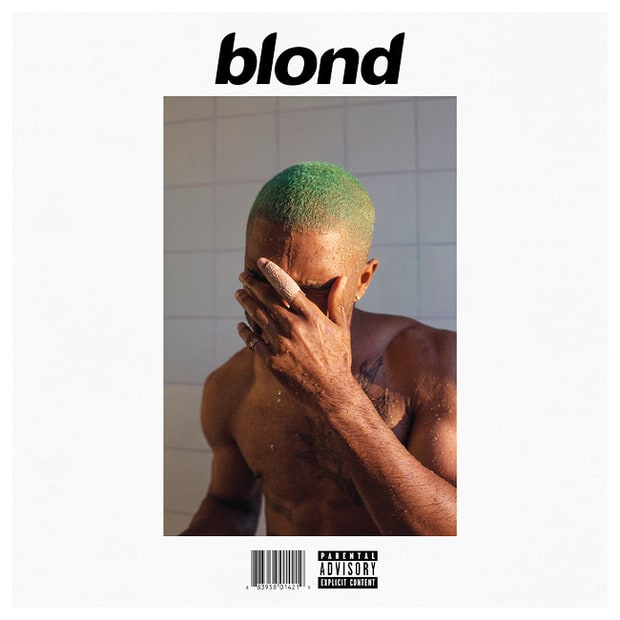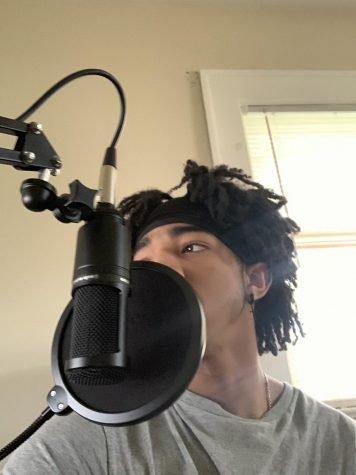A Painful Past, A Promising Present
Frank Ocean’s highly anticipated album “Blonde” lives up to expectations
More stories from Clarissa Mullig
After Frank Ocean released his first album, “Channel Orange,” in 2012 to great critical acclaim, the press and the public eagerly awaited his next work. What followed was a four-year hiatus, as Ocean let fans grown more and more impatient, only occasionally dropping cryptic hints about his next album. Finally, after a summer of building up anticipation, Ocean exceeded expectations by dropping not one album, but two: the 45-minute visual album “Endless” on August 19, followed by the studio album “Blonde” on August 20. “Blonde” topped the Billboard 200 instantly. The amount of time Ocean took to craft this album is representative of how much work was put into its creation.
“I had the time of my life making all of this,” Ocean wrote on his Tumblr after the album’s release. “Thank you all. Especially those of you who never let me forget I had to finish. Which is basically every one of ya’ll. Haha. Love you.”
More than anything, “Blonde” is an album about memories. Over the course of 17 tracks, Ocean explores the past, recounting stories of love, sexuality and heartbreak. The album creates an almost dreamlike atmosphere, with ambient, often abstract songs that use spare instrumentation. Many songs feel formless, almost deconstructed; rather than individual tracks, the album seems to stand on its own as a single piece. Some tracks are practically stripped bare, relying on acoustic guitar or distant piano, sometimes using no percussion at all. Despite this, none of the tracks on “Blonde” feel empty because, while the album is occasionally minimal in its production, it is also saturated with emotion. Though “Blonde” is filled with enigmatic lyrics, Ocean’s honesty and effort are apparent, creating an incredible intimacy with the listener.
The album’s centerpiece is its ninth track, “Nights,” a nine-minute journey that comes to a climax when an unexpected shredding guitar solo transitions the song into a complete style change. At first it sounds like the album’s moved on to the next track, until it brings back the same hook over the new beat.
The album’s songs focus on stories of past heartbreak, nostalgia and the passage of time, often creating a tone of disillusionment, disappointment and dissatisfaction. In “Ivy,” Ocean muses over a failed relationship and fragments of better days. The song is steeped in nostalgia: “We’ll never be those kids again,” Ocean sings, supported only by guitar. The song’s tone is one of wistful resignation, but ends abruptly, seemingly unfinished. As several moments of silence sink in, the song ends on a note of deep dissatisfaction.
“Self Control” also fondly reflects on missed opportunities of a past relationship. The song’s guitar, which is reminiscent of blues, combines with Ocean’s vocal to create a muted sort of mournful ballad. In “Solo,” Ocean’s beautiful vocals are particularly prominent. Accompanied by synthesized pipe organ, the singer croons a gospel-like melody, describing a series of vignettes that revolve around being alone. Ocean also sings about the passage of time on “Skyline To”: “Solstice ain’t as far as it used to be/It begins to blur, we get older/Summer’s not as long as it used to be/Everyday counts like crazy.”
“Blonde” isn’t entirely focused on sad themes. One of the most uplifting melodies on the album is “Pink + White,” which glides on soaring piano and acoustic guitar, and wraps up as Ocean harmonizes with ethereal background vocals by Beyoncé. “Solo (Reprise)” features a short but powerful rap by André 3000, packing a higher level of intensity than some of the album’s more relaxed tracks.
While “Blonde” focuses on nostalgia and past mistakes, its tone is far from depressing. Instead, the album is bittersweet. In “Channel Orange,” Ocean explored the pain of open wounds; in “Blonde,” he muses over the scars left behind. He hasn’t quite moved on from these pieces of his past – there are no triumphant, empowering anthems here. “Blonde” is about regret, but it’s often calm, soft and sweet. In the end, there are plenty of good memories mixed in with the pain. Ocean epitomizes this in “Ivy,” when he sings: “I could hate you now/It’s quite alright to hate me now/But we both both know that deep down the feeling still deep down is good.” While the past can hold pain, the positive experiences are worth holding onto.
“Blonde” is a journey through heartbreak, solitude, and nostalgia, but after you’ve finished listening, the feeling still deep down is good.







